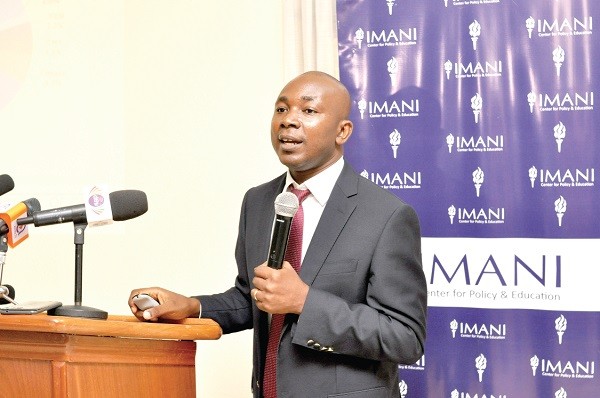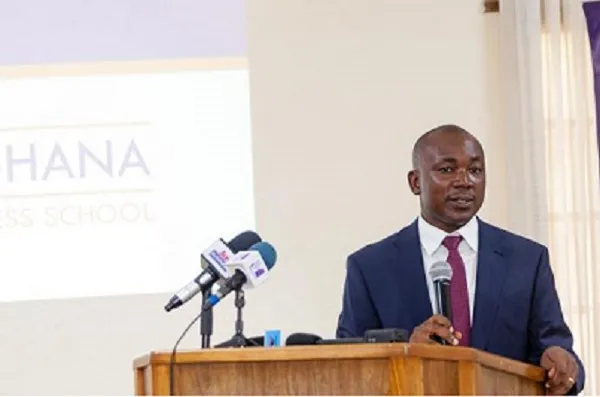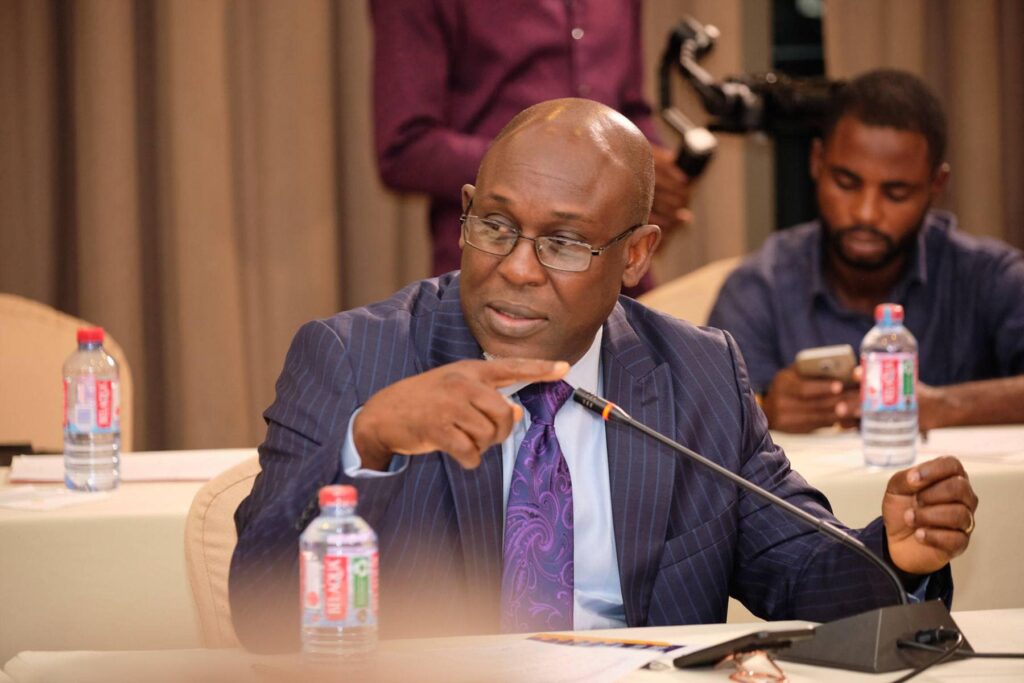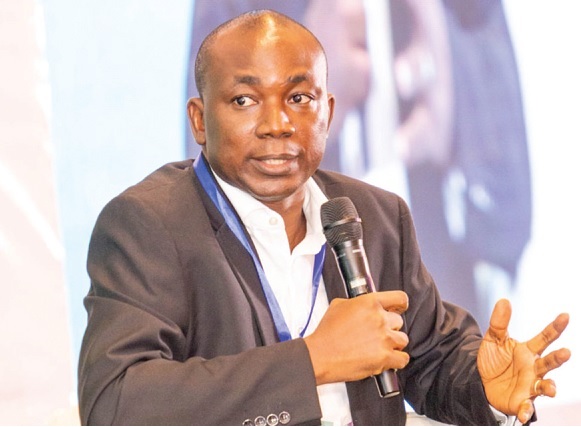Economist and Professor of Finance, Professor Godfred A. Bokpin, has called for a broad reform of Ghana’s cocoa value chain, describing the current pricing regime and management structure as deeply unfair to farmers.
According to him, cocoa farmers, once among the wealthiest in the country, now live in despair due to years of systemic neglect and inefficiency. Speaking on the state of the cocoa industry, Prof. Bokpin traced the decline of farmers’ fortunes back to Ghana’s post-independence years.
“When colonization changed our economic model from food dependency to cash crops, cocoa farmers were the ultimate beneficiaries. They were the richest. But when fellow Ghanaians took over, this is the result.
“My father was a cocoa farmer. We used to talk about cocoa scholarships. Maybe COCOBOD can do the analysis and tell us, over the years, how many cocoa farmers’ children have truly benefited from that scheme. Just go to the villages and see what cocoa farmers are going through.”
Professor Godfred A. Bokpin, an Economist and Professor of Finance
For him, both major political parties have failed cocoa farmers. “We are putting all the blame now on the current administration. But if you are talking about apology, both the NPP and NDC owe Ghanaians an apology. Big time,” he said, while stressing that the challenges cut across successive governments.
Prof. Bokpin identified three critical issues that, in his view, have worsened conditions in the cocoa sector. First, he pointed to the impact of exchange rate policies on the income of farmers.
He explained that while the government has passed on 70 percent of the Free on Board (FOB) price to cocoa farmers and retain 30 percent, the exchange rate used in converting proceeds from dollars into cedis ultimately disadvantages farmers. “It’s not just the 30 percent being held back. By using a lower exchange rate, the real gains are not passed on to the farmer,” he explained.

He recalled a 2012 episode in which the Bank of Ghana was accused of using lower exchange rates to buy cocoa proceeds, only to reverse them on the market for profit. “When we say we are smart, all that it means is, let’s cheat fellow Ghanaians,” he remarked.
Inefficiencies in State-owned Enterprises
The second issue, he argued, relates to inefficiencies in state-owned enterprises, particularly the Cocoa Board. Referring to the 2025 budget, he noted the GHS 33.6 billion classified as “other expenditure,” which he believes largely covers the losses of state-owned entities.
“If we were to run our state-owned enterprises efficiently, we could be making savings that could go into critical infrastructure or direct support for farmers. Instead, the taxpayer is covering inefficiencies”.
Professor Godfred A. Bokpin, an Economist and Professor of Finance
The third concern raised by Prof. Bokpin is the long-term sustainability of the cocoa sector. He warned that if reforms are not pursued, farmers may eventually abandon cocoa farming altogether.
“In the next 10 years or so, we will not be talking about cocoa here. Some farmers are already analyzing whether they may be better off trading off their cocoa lands for galamsey. Farmers are confused, and they are wondering which way to go”.
Professor Godfred A. Bokpin, an Economist and Professor of Finance
Acknowledgement of Government’s Genuine Effort
Despite his criticisms, Prof. Bokpin acknowledged efforts by the current government to ease the burden on cocoa farmers, citing initiatives such as the distribution of free fertilizers and seedlings, as well as improvements in the share of FOB prices passed on to farmers in dollar terms. However, he argued that isolated interventions are not enough.

“We should be looking at a whole reform in the cocoa value chain that makes the sector attractive to young people and to business-minded individuals. We need to adopt a business approach to cocoa, with commercial plantations, rather than leaving it to peasant farmers cultivating a few acres”.
Professor Godfred A. Bokpin, an Economist and Professor of Finance
Cocobod’s Financial Cost
Adding to the discussion, Kofi Bentil, Senior Vice President of the IMANI Centre for Policy and Education, raised questions about the Cocoa Board’s financial management, particularly its payroll costs.
He disclosed that COCOBOD employs an estimated 10,000 people nationwide, with a monthly wage bill of about $12 million. “Twelve million dollars every month, paid to some people to take care of cocoa farmers. If this is true, it raises very serious questions about the efficiency of the system,” he stated. Kofi Bentil expressed concern that such heavy administrative costs do little to address the struggles of farmers.

“We say these things and you’re shocked. I would want somebody to tell me it’s not true, because we checked, and that’s the information we got. Twelve million dollars converted to Ghana cedis, being paid every month, while cocoa farmers are suffering”.
Kofi Bentil, Senior Vice President of the IMANI Centre for Policy and Education,
Both Prof. Bokpin and Mr. Bentil underscored the need for structural reforms rather than short-term adjustments. For them, the cocoa sector, which has long served as the backbone of Ghana’s economy, cannot continue to operate on a model that leaves farmers impoverished while administrative costs balloon.
Prof. Bokpin emphasized that the future of cocoa depends on attracting young people and private investors to the sector. Without such reforms, he warned, Ghana risks losing not only its position as a major global producer but also the livelihoods of thousands of farming families who depend on cocoa for survival.
READ ALSO: Vice President Reaffirms Government’s Support for Military Training Excellence



















